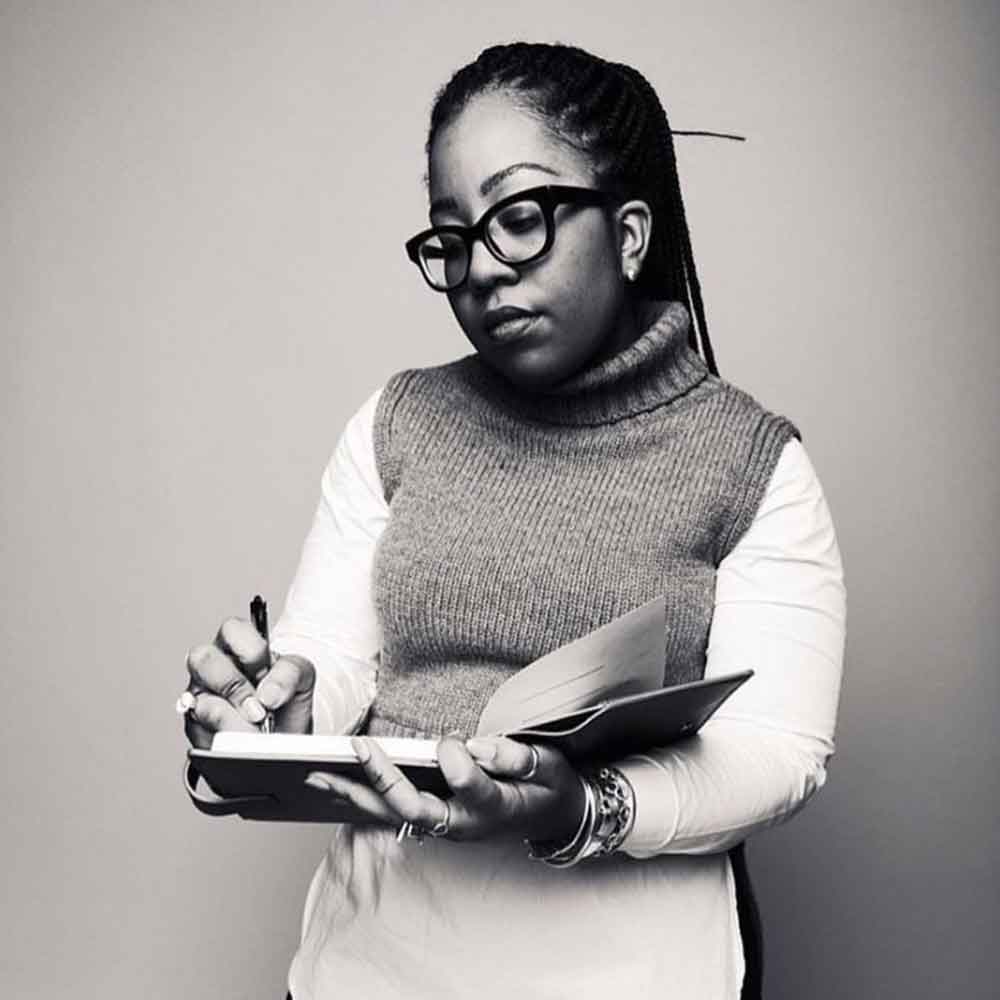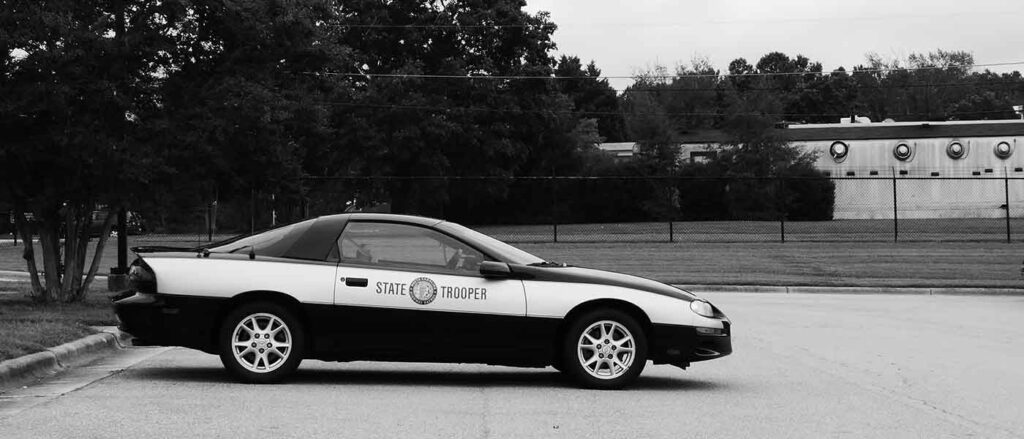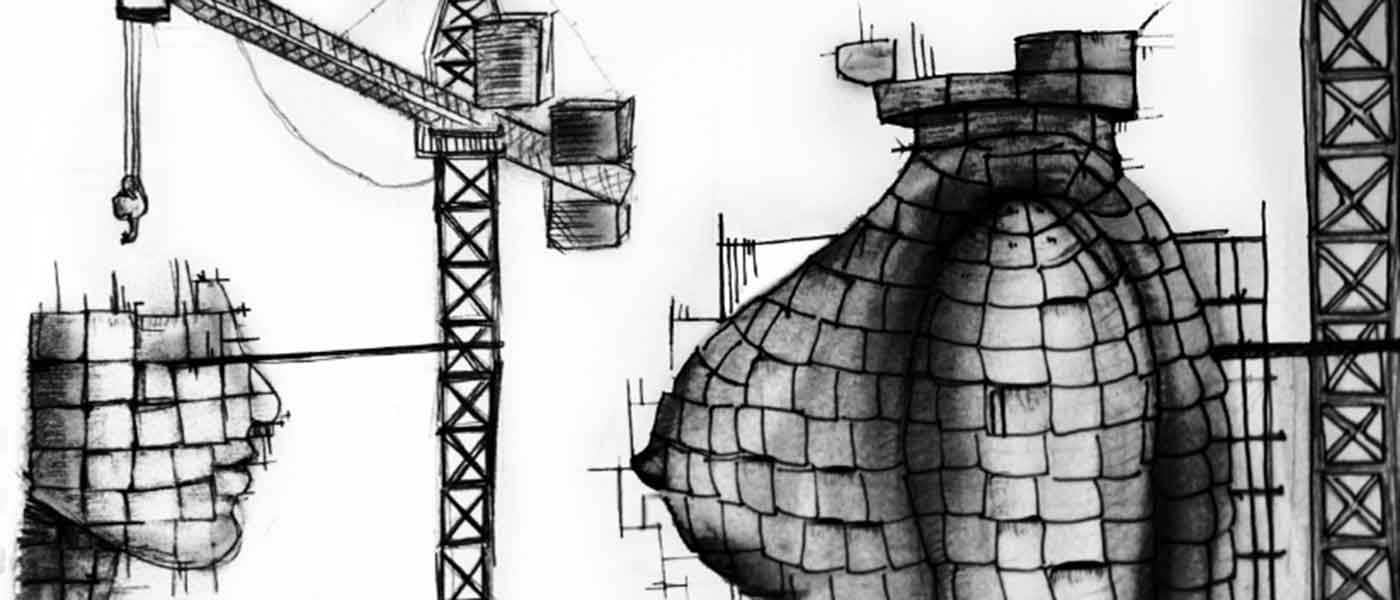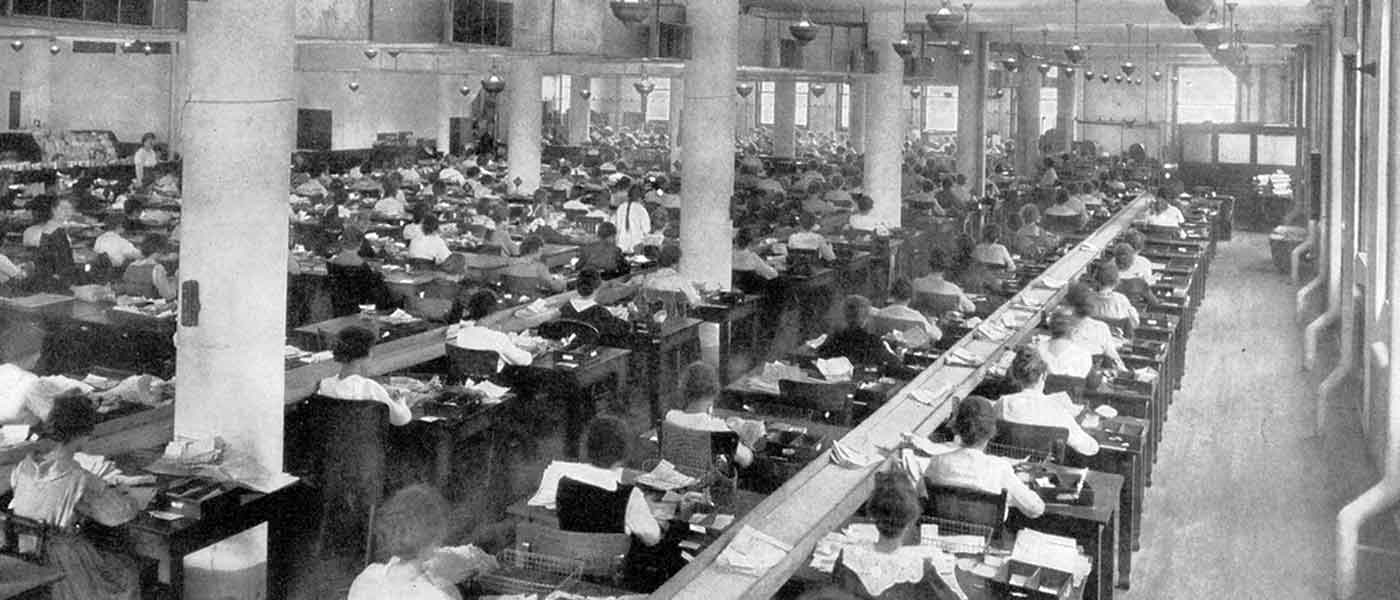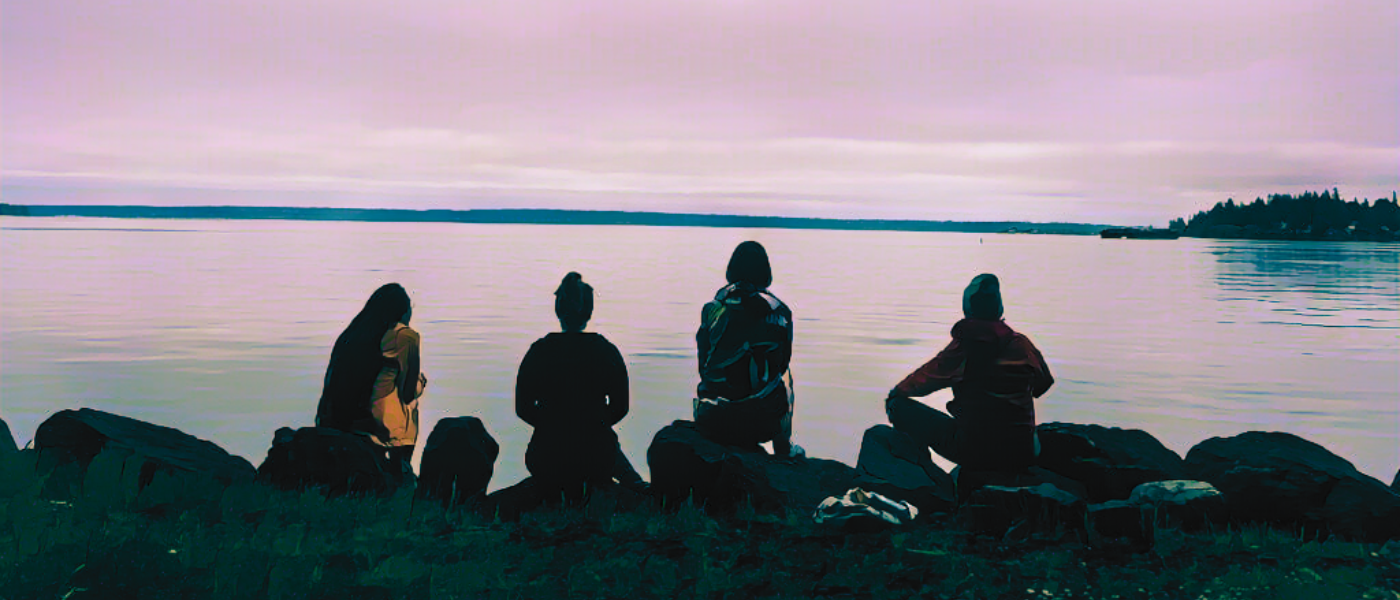I think Rick Ross was playing. Some track about droptop Maybachs and spraying champagne on Puerto Rican girls with fat asses. It was summer, I was with my best friends, and we were on the road. There was Sade, the wildest, but strangely most practical, of our crew; Noele, baldheaded and hardheaded; and me, 20-years-old and carefree, hand hanging out the open window, fingers cutting through the warm breeze. Our tits were sitting pretty in our bikini tops, we had crumpled bills hard-earned from internships stuffed into our thrift store, brand-name purses, and not a care in the world, aside from making it home in time for Love and Hip Hop Atlanta on VH1. I was watching the giant maple trees lining the highway whip past us, turning to fleeting blurs of green as we sped by. The sunset had lit the sky on fire. It was perfect.
Desperate not to take the Jitney bus, we were hitching a ride back to the city from the Hamptons with Blaine and Eric, friends of my friend King Zakariyah (his given name). Zak, as we called him for short, had invited us all to spend Memorial Day weekend at his boy’s house.
“He has a sick crib in Bridgehampton,” he promised, “and mad people are coming through. Bring friends.”
We rode down on Friday with Sade’s friend, Jess Benowitz, a Jewish chick with a doctor dad, a loft in Dumbo, and a white-on-white Range Rover, where she stored her equestrian gear. We spent one night at her parents’ East Hampton pad, a sprawling house with floor-to-ceiling windows and a cold, white interior complete with gaudy, ‘80s furnishings Tony Montana would’ve loved. I imagined her dad, lounging on the pool chairs out back, dressed in crisp, white swimming trunks, adding layers to his leathery tan. The next morning, Jess dropped us off at Zak’s friend’s place, a modest, one-level, ranch style house with a front yard full of weeds.
The place had character, though: surfaces cluttered with family photos, an arrangement of overstuffed couches in the living room, and a stained burgundy carpet that, given the chance, could’ve told you some stories. Zak pulled a cigar leaf from his big, brown lips and flashed a dopey smile when he saw us barreling through the front door. His eyes were red and low. He might’ve had oversized Prada sunglasses perched on top of his head, or a Burberry towel draped around his neck, or Hilfiger swim trunks strung low around his hips, or something like that. He knew, like we knew, what it meant to be in the Hamptons that weekend, the elusive place where the rich go to play. We’d finally made it.
On the way home, everyone was still amped off the energy from the weekend, especially Eric, who was in the backseat next to me rolling a joint. We were just 20 minutes into our journey and already lost, despite Siri’s cheery, automated voice telling us to keep straight on Route I495 East. Sirens in the distance interrupted our mellow flow.
“Somebody in a car back there’s in for it,” Eric said, sealing the Bamboo paper with a lick.
“Right?” agreed Blaine with a laugh from the driver’s seat. He was looking down at his iPhone, following along with the GPS’ digital map. “Glad it ain’t us.”
I leaned forward and glanced into the rearview mirror to grab at my chlorine-soaked hair. I couldn’t wait to get home and deep condition. Switching my gaze to the road behind us, my eyes narrowed. The sea of cars had parted like automatic doors, leaving it clear for the cop car seemingly bound straight for us.
“I think he’s coming for us! He can’t be coming for us, right?” I asked, my heart rate quickening. Shit, why did my friends have to be such potheads? I thought. I don’t even smoke. I’m not trying to go down for their vices. Nah, not today.
“Just chill,” Eric said slowly, as he pulled down the armrest between us and hid the joint behind it. He moved with the confidence of someone who’d been in this predicament many times before. He never took his eyes off the rearview.
The sirens whooped again. This time they were closer, and there was no doubt: they were for us. Blaine flicked on his right signal and veered smoothly onto the shoulder. Afraid that any sudden movement might cause suspicion, I turned cautiously to look out the back window, and there was the cop, stepping out of his car, its lights flashing in a frenzy of red and blue around him.
I’ve always felt uneasy around cops. It’s just the way it is in Black communities. Even if you don’t live a street lifestyle, you learn the emotion quickly. I grew up in Bed-Stuy, the notorious neighborhood repped by Jay-Z and Biggie Smalls, where you had to “do” or you’d “die.” But, as tends to be the case in urban cities across America, the landscape of a neighborhood can switch up in mere blocks. I was both minutes and worlds away from the driveby shootings and crack slinging that kept the cops coming and going. The most action my enclave of The ‘Stuy got was a block party going too late and a cop coming by to remind us to keep it down. Still, while I’d never yelled, “Yo, it’s the boys!” or “The pigs are out” when the police pulled up, I’d seen enough in passing, been told enough horror stories, memorized enough rap verses that “fuck the police” had become my mantra.
I’d only had run-ins with the police twice, both times in high school. When low on funds and high on rebellion, I would slide through the emergency exit doors in the subway behind ladies with strollers. The first time I was caught, I ran to the end of the platform and tried to hide, unsuccessfully, behind a pillar. The cops, a male-female pair, stuck me with a $60 ticket, which I’d secretly gone downtown to pay off without my parents ever finding out.
The next time I skipped out on my fare, I was running late to a birthday party. My getaway train was just rolling in when a cop, young and Black, approached me. Perhaps a little too comfortable because he and I had something in common, I threw serious attitude his way, sighing heavily and insisting “it’s not that serious,” and, “I’m really just tryna get on my train, man.” I remember he first reached for his cuffs, but then asked for my mother’s phone number instead.
“You’re too good for this, sis,” he said. “You’re smart. I can tell.”
My mom called me later that evening, speaking before I could even mutter a “hello.”
“Don’t ever pull a stunt like that again. If you need train fare, just ask,” she said, adding, “next time the cop might not be so nice.”
As the cop approached Blaine’s car, I reminded myself to be polite, figuring if we said enough “yes, sirs,” we’d be fine. There was no way he knew that Eric had shaken the last bits of bud from his dimebag to roll an end-of-the-holiday J. There had to be some other reason we were being pulled over. Maybe Blaine’s tail light was out. Or maybe he forgot to signal. We’d be out of this soon, we’d turn the Ross back up, we’d shake it off, we’d go home.
The cop tapped at Blaine’s window. “License and registration, please.” He had a sunburned neck and Kennedy good looks. I hate to admit it, but I found him attractive.
He looked down at Blaine’s ID, then back at Blaine.
“I’m pulling you over because I saw you texting and driving,” he explained, his Long Island accent thick.
How could that cop way back there possibly have seen the phone in Blaine’s lap? I wondered.
Noele jumped to Blaine’s defense before he could reply, “but he was checking his GPS! We don’t know how to get home.”
“Step out of the car, sir,” the cop sighed.
Blaine was quiet in cooperation. He never said a word in protest.
We all watched as Blaine walked the white line on the road to prove his sobriety. I felt like shit, imagining how afraid he must’ve been, hating that as the driver, the pressure was heavy on his back. I thought back to just an hour earlier, when we were doing cannonballs in the pool, eating pizza and swigging Coronas, Blaine babysitting one bottle all afternoon because he had to “drive back, man.”
“Alright, everyone out.” The cop was back.
Sade looked at me, her eyebrows furrowed in confusion.
“Okay, guys, I know you have drugs in the car. It’s a big party weekend. You’re coming home from the beach. If you show me them now, there won’t be any trouble.” He was playing “good cop.”
“We don’t have anything, officer,” Eric said, his confidence unshaken.
The cop raised his eyebrows. “Okay, I need everyone to take a seat on that curb over there,” he motioned to a sliver of raised sidewalk further to our right. And so we sat, our chins in our hands, looking on as the cop rifled through the trunk.
“This has to be illegal,” Sade whispered.
“Yo, I know my rights,” Noele erupted. “You can’t just be searching my shit like that.”
The cop didn’t respond.
I wondered how we looked to the people driving past. This string of Black girls and boys sitting on the side of the road in the Hamptons, while a cop tore their car apart. How had getting stopped for “texting” turned to this?
I thought back to our ride in with Jess. The way she drove with abandon. The way we danced our arms through her open sunroof. Was a car full of girls, with a blonde at the wheel, speeding down an interstate not as worrisome? And what would Jess have done if we had gotten pulled over? Could she bat her eyelashes? Could she drop a name? Call her father’s lawyer?
When the cop’s search proved fruitless — the joint somehow went unfound — he turned his attention back to Blaine, to perform the DWI test again. Maybe this time out of fear, because he definitely wasn’t intoxicated, Blaine faltered. Maybe he stepped out of line, didn’t touch his finger to his nose just right, because the next thing I knew, cuffs were being clamped around his wrists and he was in the back of the cop’s car on the way to the precinct, while we sat stunned, speechless.
When we got back in the car, this time with Noele behind the wheel, the contents of my purse were spilled out all over the back seat, tampons and all. I’d never felt more violated.
Blaine stayed the night in jail, and Eric picked him up first thing the next morning, carefully driving back to Philly and vowing never to return to the Hamptons again. We tried our best to move on, but I was still on edge and I couldn’t shake the feeling. I texted Blaine a week later: “How are you holding up?” He appreciated the concern, but laughed the whole thing off, texting back, “I’m chillin’. I mean, what else do you expect? A bunch of Black kids driving through the Hamptons? That’s just how it goes.”
He’d said what I’d been afraid to accept.
I called Sade and Noele to be sure. “Do you think we got pulled over because we’re Black?” I asked.
“I’ve been wondering the same thing!” Sade said. So why hadn’t she said anything sooner? “I really don’t know, maybe.”
But things were clear for Noele, who said “fuck yes,” with no hesitation.
Over the three years that followed, I’ve thought back to this incident often, but never more than November 2014. I was working as a Peace Corps Volunteer teaching English in Cambodia at the time, and from 9,000 miles away, America seemed to be spiraling out of control. I was sitting in my school’s library one afternoon, scrolling through Instagram, when the news began filling my feed. Striking photos of American flags fashioned like nooses hanging from the necks of men with skin like slate. Snapshots of people of all colors shoving posters into the air that read: “HANDS UP, DON’T SHOOT.” The photos’ captions plead for peace or revolution. They expressed anger at the judicial system, communicated pure shock, dismay, disappointment.
Suddenly, my friends had become activists. Suddenly, dialogues over dumb-ass memes were silenced. There was no more chatter about Kim Kardashian’s oiled up posterior on the cover of Paper magazine. The only name on everyone’s lips? Mike Brown, the 18-year-old Black man killed at the hands of Darren Wilson, a white cop, in Ferguson, Missouri, three months prior. The verdict the world had been waiting for had been reached – Wilson was found innocent, he would be a free man.
I immediately called my father to lament about the news. But he wasn’t surprised by the court’s decision. What? Where was his faith? I wondered as he rattled off details of similar cases that had happened in my Brooklyn neighborhood just that week.
“That’s why I was so glad you were born a girl,” he confided. I realized then his hope had been long gone. Probably lost somewhere back in his childhood in New Jersey, when the Mike Browns, Sean Bells and Amadou Diallos were simply known by different names.
Trying to digest all this in a tiny library in rural Cambodia, where kids were bouncing up and down at my sides, excitedly proclaiming, “It’s my dream to live in the USA!”, I was deflated.
I thought about the times those kids had looked at me with wide eyes, eager for stories of this “land of the free and home of the brave,” and the ways I’d indulged them, explaining, proudly, that in America, people are celebrated for their uniqueness. I thought about the days I walked down dirt roads in my village with my head held high, wearing my ‘fro like a crown. I thought of the many times I’d been offered bleaching cream by well-meaning locals and how I refused, responding “In America, people love brown skin. They even climb into machines to get darker!” I felt like I’d been selling lies.
After school, I got on a bus to a neighboring Cambodian province to meet up with fellow volunteers. I needed to talk this out. I needed to drink. My friend Abby, a white girl from Boston, greeted me at the door of our guesthouse, a drab place with $15 rooms we rented when we needed a break from our host families.
“Did you hear the news?” she asked, tilting her head to the side sympathetically. Our friend Jared, a fratty white guy from California, looked up from his computer.
“I was just reading about the case,” he said. I could already tell from the tone of his voice he was ready for a healthy debate. “The way it all went down was unfortunate. But, he was doing something wrong. He stole from that store. I mean, the cop approached him for a reason.”
Abby and I exchanged glances. It was a back and forth I’d been having in my head on the bus ride up. Yes, Brown had stolen cigars from the store, but how had the exchange with the cop led to his death? There was no excuse. To say “the way it went down” is “unfortunate,” and to ask, “wasn’t he doing something wrong?” the way Jared did, conveniently left out the context of the situation.
Abby tried to level with Jared, saying things like “you might be right,” and asserting that Brown’s offenses didn’t “excuse the cop’s behavior,” all of which I agreed with, but my mind was elsewhere. I was drifting back to that summer drive home from the Hamptons.
“It’s called racial profiling,” Abby snapped.
“I was profiled before,” Jared said almost automatically, as if he’d been waiting to say it the entire time.
I snorted. “Do tell.”
He told us about his experience — how he had driven home after a big basketball tournament drunk, and how, when a cop pulled him over for a suspected DWI, he’d blown over the limit. His court case was thrown out, but he still considered it one of his most shameful ordeals.
I wondered whether I should tell Jared about the Hamptons, about how we hadn’t been driving drunk but just driving Black. And I wondered how he would respond.
“I was racially profiled before,” I said a few moments later, “at least, I’m pretty sure I was.” I told them about the time in the Hamptons. “Shit.” Jared twisted up his face. “But wait, you all did have weed in the car…”
Okay, my friends were planning to spark up in the car, but the cop couldn’t have known that when he pulled us over. The issue is in the initial assumption and where those assumptions come from, whether the individual is innocent or not. Why did the cop think we had contraband in the first place?
“You were both profiled. Just for different reasons,” Abby resolved. Was “drunk college student” a profile? I mean, maybe. But there was no way one could relate the weight of a person’s skin color being considered criminal to a Dickinson bumper sticker implicating a driver as a party animal. And Jared was drunk. Meanwhile, it took the cop several tries to finally pin an offense on Blaine.
Jared’s case was clear; college kid, too many beers, big basketball tournament, 0.08 on the breathalyzer. Done deal. There was no gray area, no room for doubt. And yet I still had to wonder if we were pulled over for being a bunch of kids driving home from the Hamptons or for being a bunch of Black kids driving home from the Hamptons. But mostly I wondered why I had to wonder at all.
